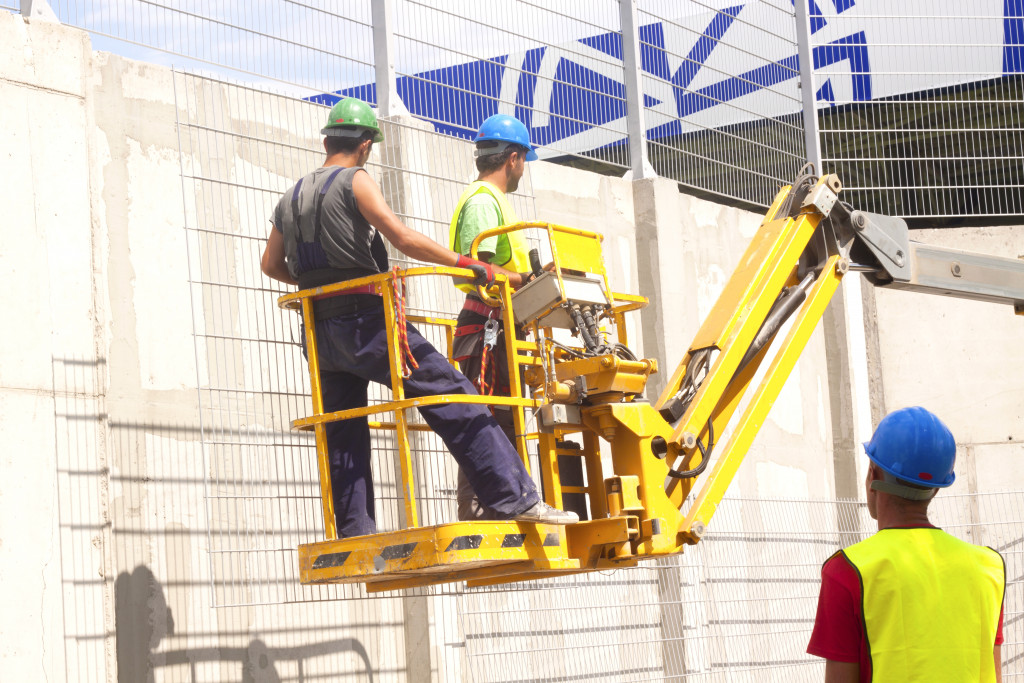When most people think of construction site damage, they likely think of property damage — damaged homes, offices, or other structures. But the truth is that construction site damage can take many forms, from environmental destruction to injuries to workers. To prevent as much construction site damage as possible, it’s essential to be aware of the many ways it can occur and take steps to mitigate the risk.
Here are 15 tips for preventing construction site damage:
1. Use Proper Equipment
One of the most common causes of construction site damage is improper or outdated equipment. Be sure that all machinery and tools being used on the job are up to date and in good condition to avoid any accidents.
2. Inspect the Site
Before beginning any construction project, it’s essential to inspect the site and identify potential hazards. This includes checking for unstable ground, hazardous materials, and other dangers that could result in damage. By taking the time to assess the risk, you can take steps to prevent accidents and damage from occurring.
3. Use Safety Measures
Working safely is just as important as using good equipment. In addition to making sure that all of your workers are properly trained and know how to use tools safely, it’s also important to take steps like installing floor protection and safety barriers to protect against construction site damage.
4. Use the Right Materials
Using substandard or inappropriate materials can result in construction site damage, such as the collapse of a building or foundation. Choosing materials that are right for the job and properly maintaining them can help to prevent accidents and injuries.
5. Communicate Clearly
Construction sites are often large and complex, so it’s important to communicate clearly with all workers, subcontractors, and others involved in the project. Establishing clear lines of communication can help to avoid confusion and mistakes that could lead to damage.

6. Follow the Plans
Another way to prevent construction site damage is to make sure that all workers are familiar with the plans for the project and understand their role in its execution. Having a clear understanding of the task at hand can help to prevent accidents or mistakes that could lead to damage.
7. Keep the Site Tidy
A disorderly construction site increases the risk of injuries and accidents. Keeping the work area clean and organized can help to keep workers safe and minimize the risks of damage from falls, tripping, or other hazards.
8. Use Best Practices
There are industry-wide best practices for construction that should be followed to help prevent damage. These include proper storage and disposal of materials, following safety protocols, and adhering to building codes.
9. Be Prepared for Weather
Bad weather can cause a variety of construction site damage, from flooding to wind damage. Being prepared for the worst by having a plan in place can help to minimize the risks and keep workers safe.
10. Have a Contingency Plan
Even with the best effort, accidents and damage can still occur. Having a contingency plan in place can help to minimize the impact of construction site damage and get the project back on track as quickly as possible.
11. Work With a Reputable Contractor
Choosing a reputable and experienced contractor is one of the best ways to prevent construction site damage. A good contractor will have the knowledge, expertise, and resources to safely and efficiently complete your project.
12. Get the Right Insurance
Having adequate insurance coverage is the best way to be prepared for the unexpected. Work with a reputable insurance provider who can help you choose the right level of coverage and ensure that your project is protected against any damages.
13. Review Your Policy Regularly
It’s important to review your insurance policy regularly to make sure that it’s up to date and covers all the risks associated with your project. Doing so can help to prevent any surprises if damage does occur.
14. Have a Safety Plan
Every construction project should have a safety plan in place to help prevent accidents and injuries. The safety plan should be reviewed regularly and updated as needed to reflect any changes in the work environment or project.
15. Follow OSHA Guidelines
The Occupational Safety and Health Administration (OSHA) has established standards for worker safety that all construction sites should follow. By adhering to these guidelines, you can reduce the risk of accidents and injuries and minimize the impact of any damage that does occur.
By following these tips, you can help to prevent construction site damage and keep your project running smoothly. We hope you find them helpful in preventing damage and ensuring that your project is completed safely and successfully!

